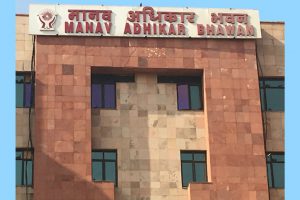The National Human Rights Commission has issued a notice to the Union Home Ministry on a complaint alleging the draconian approach of the Government of India for renewal of the Foreign Contribution Regulation ACT (FCRA) license to the NGOs of Human Rights Defenders. The text of the proceeding of the Commission in the matter is as follows:
“The 7th Human Rights Defender Forum Colombo, Sri Lanka has informed the Commission to intervene in the Foreign Contribution Regulation Act (FCRA) license non-renewal of Centre for Promotion of Social Concerns (CPSC). Such systematic attack on rights of the Human Rights Defenders and on fundamental rights of the association and assembly as enshrined in the Article 19 of the Constitution of India has also been brought to notice of the Commission.
UN Special Rapporteur on Freedom of Association and Assembly in his local analysis of FCRA 2010 has submitted a report of the Government of India in 2016 arguing that FCRA in not conformity with international law, principles and standards as access to resources including the foreign funding is a fundamental part of the right to freedom of association under the international laws, standards and principles. Moreover, limitations placed on access to foreign funding will have to pass the litmus tests of the following;
i) Prescribed by law
ii) Imposed solely to protect national security, public safety, public order, public health or morals, or the rights and freedoms of others.
iii) Necessary in a democratic society such as rights and freedoms of others.
Prima-facie it appears FCRA license non-renewal is neither legal nor objective and thereby impinging on the rights of the human rights defenders both in access to funding including foreign funding.
The Commission takes suo-motu cognizance of the present case and directs Secretary (Home) to inform within a period of six weeks on the following :-
a) Number of NGOs of Human Rights Defenders who have not been allowed renewal of the license and the amount received by them from foreign funding during last three years and the reason for non-renewal.
b) To point out in case of Centre for Promotion of Social Concerns (more publically known through its programme namely People’s Watch) how the litmus test laid down by the UN Special Rapporteur is applied in the adjudication by the Central Government.
c) How the generic aspect of access to foreign funding and continuance of the same is not the right to form association and is not against international law, standards and principles.
After perusing submission of Secretary (Home), Government of India the Commission may decide to hear the oral presentation, if necessary, about the present allegation of the draconian approach and the correctives the Government of India is contemplating.
The Commission directs the Government u/S. 12(d) of the Protection of Human Rights Act, 1993, to furnish the above information to help the Commission in taking up the hearing of the matter and to arrive at whether the review of the law can be recommended.”
National Human Rights Commission
[16th November, 2016]

